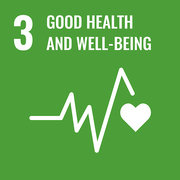
COVID-19: platelets also contribute to faster response to vaccines
COVID-19 has exponentially accelerated research into mRNA vaccines, which have been studied for years to prevent cancer or other viruses such as the Zika virus. They are very versatile in design and easy to produce on a large scale. In 2019, many laboratories channeled their energies, resources and knowledge into their development, to the point that in just one year, these vaccines went from the experimental phase to worldwide administration, with surprising effectiveness.
Since then research into vaccines has never stopped. This new study, carried out by researchers at Sapienza University of Rome and published in the Journal of Thrombosis and Haemostasis, analyses the role of platelets in the immune response induced by vaccines. Platelets are the most numerous cells in the blood and are known for their role in preventing blood loss caused by blood vessel injuries. Like sentinels, they patrol the blood system and alert the immune system if they detect pathogens or inflammatory stimuli.
The study was launched when the vaccination campaign started in Italy in 2020, involving a sample of young, healthy subjects receiving the vaccine at the Umberto I General Hospital in Rome. Researchers observed the platelet and immune responses and how the two interacted. Researchers have thus, on the one hand, demonstrated that mRNA vaccines do not activate platelets and therefore do not increase the risk of thrombosis, and on the other, identified specific characteristics in these cells that make it possible to understand at a very early stage whether the vaccine will evoke a rapid immune response, a factor of extreme importance in tackling COVID-19.
"The results of our study," say the researchers, "have not only broadened the knowledge about the safety and efficacy of mRNA vaccines but will be very useful for future strategic vaccine planning".
References:
Platelet and immune signature associated with a rapid response to the BNT162b2 mRNA Covid-19 Vaccine - Flego D, Cesaroni S, Romiti GF, Corica B, Marrapodi R, Scafa N, Maiorca F, Lombardi L, Pallucci D, Pulcinelli F, Raparelli V, Visentini M, Cangemi R, Piconese S, Alvaro D, Polimeni A, Basili S, Stefanini L; Vax-SPEED-IT Study Group - J Thromb Haemost. 2022 doi:10.1111/jth.15648
Info
Lucia Stefanini
Department of Translational and Precision Medicine
lucia.stefanini@uniroma1.it
